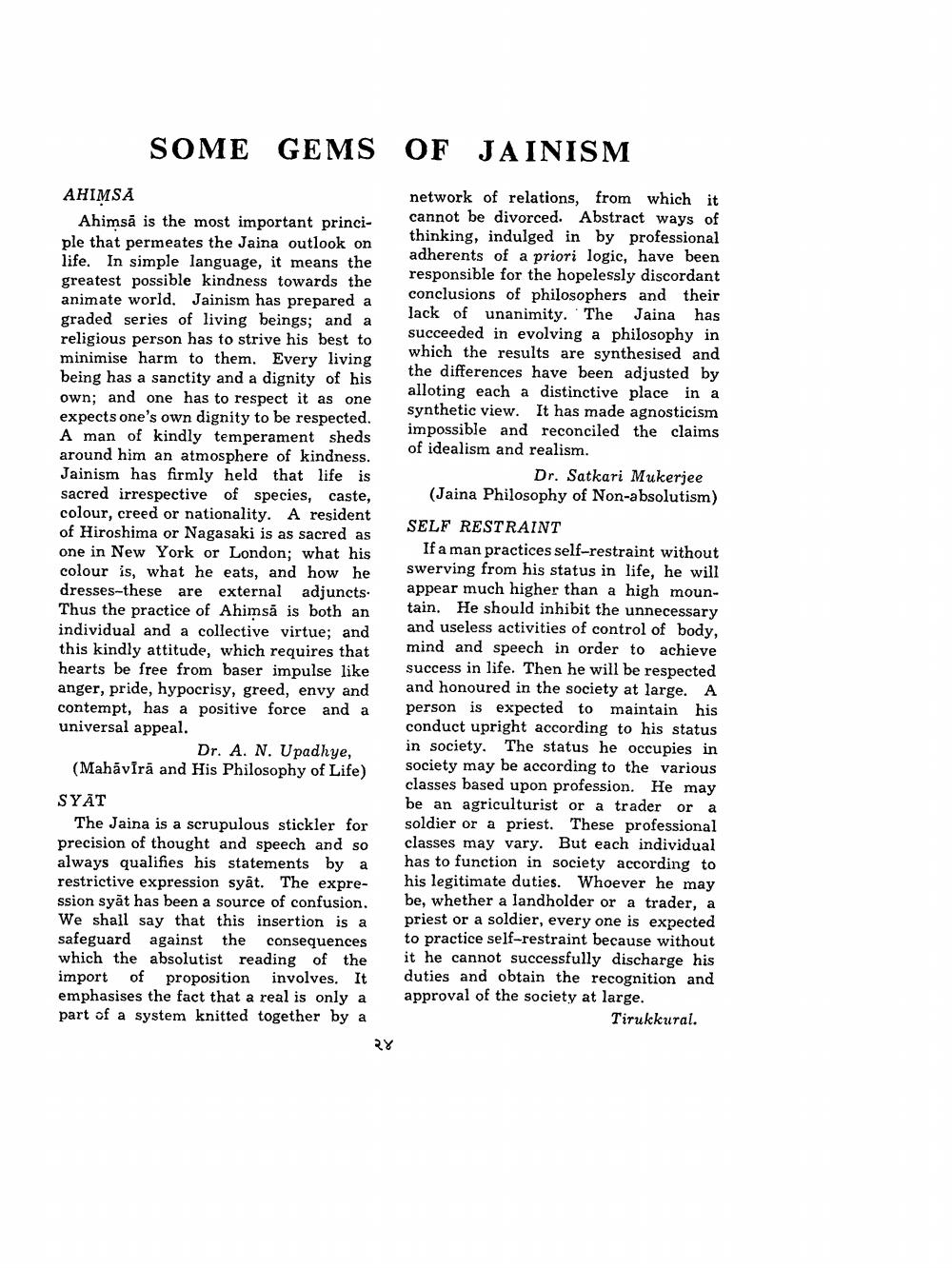________________
SOME GEMS
AHIMSA
Ahimsa is the most important principle that permeates the Jaina outlook on life. In simple language, it means the greatest possible kindness towards the animate world. Jainism has prepared a graded series of living beings; and a religious person has to strive his best to minimise harm to them. Every living being has a sanctity and a dignity of his own; and one has to respect it as one expects one's own dignity to be respected. A man of kindly temperament sheds around him an atmosphere of kindness. Jainism has firmly held that life is sacred irrespective of species, caste, colour, creed or nationality. A resident of Hiroshima or Nagasaki is as sacred as one in New York or London; what his colour is, what he eats, and how he dresses-these are external adjuncts. Thus the practice of Ahimsa is both an individual and a collective virtue; and this kindly attitude, which requires that hearts be free from baser impulse like anger, pride, hypocrisy, greed, envy and contempt, has a positive force and a universal appeal.
Dr. A. N. Upadhye, (Mahāvīrā and His Philosophy of Life)
SYAT
The Jaina is a scrupulous stickler for precision of thought and speech and so always qualifies his statements by a restrictive expression syât. The expression syat has been a source of confusion. We shall say that this insertion is a safeguard against the consequences which the absolutist reading of the import of proposition involves. It emphasises the fact that a real is only a part of a system knitted together by a
૨૪
OF JAINISM
network of relations, from which it cannot be divorced. Abstract ways of thinking, indulged in by professional adherents of a priori logic, have been responsible for the hopelessly discordant conclusions of philosophers and their lack of unanimity. The Jaina has succeeded in evolving a philosophy in which the results are synthesised and the differences have been adjusted by alloting each a distinctive place in a synthetic view. It has made agnosticism impossible and reconciled the claims of idealism and realism.
Dr. Satkari Mukerjee (Jaina Philosophy of Non-absolutism)
SELF RESTRAINT
If a man practices self-restraint without swerving from his status in life, he will appear much higher than a high mountain. He should inhibit the unnecessary and useless activities of control of body, mind and speech in order to achieve success in life. Then he will be respected and honoured in the society at large. A person is expected to maintain his conduct upright according to his status in society. The status he occupies in society may be according to the various classes based upon profession. He may be an agriculturist or a trader or a soldier or a priest. These professional classes may vary. But each individual has to function in society according to his legitimate duties. Whoever he may be, whether a landholder or a trader, a priest or a soldier, every one is expected to practice self-restraint because without it he cannot successfully discharge his duties and obtain the recognition and approval of the society at large.
Tirukkural.




